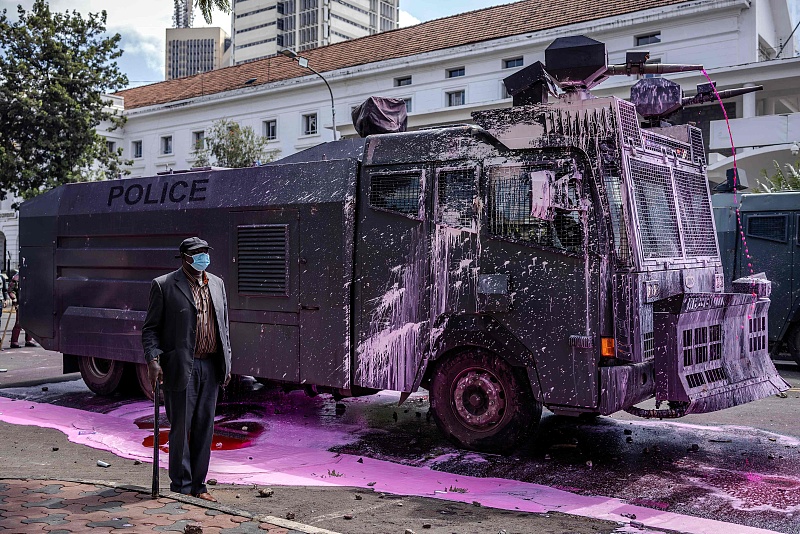
Kenyan unrest disrupts businesses, hurts economic recovery
Widespread protests rocked Kenya in recent weeks over a divisive Finance Bill proposing a raft of tax increases.
The East African country’s capital, Nairobi, was the most affected as thousands of young people took to the streets, calling for the abolishment of the proposals and political reforms. President William Ruto bowed to the pressure and rejected the bill before announcing cost-cutting measures.
The demonstrations, spanning three weeks, impacted businesses and hindered Kenya’s economic recovery.
Bill Kaimba, an entrepreneur selling and servicing electronics along Nairobi’s Tom Mboya Street, said the demonstrations forced him to close shop, reduced foot traffic, and impacted sales.
“We usually work six days a week excluding Sunday but were forced to close our premises during the demonstrations. Clients feared coming to the CBD on weekdays, and business picked up only on Saturday.”
For Dennis Kariuki, the impact of the demonstrations was far worse.
“I lost around KSh 600,000 worth of stock in mobile phones and laptops after my shop was broken into during the protests,” he said.
Kariuki, who ran the business with two partners, said they are contemplating getting a bank loan to restock.
Brian Wanyama, a public service vehicle driver in the city, said business was at a record low due to the limited number of people moving around.
“On a good day, we make around KSh 10,000 but made less than half the amount. Some roads were closed by demonstrators and the risk of vandalism forced investors to keep their vehicles off the road.”
Wanyama, who depends on daily earnings, said he had to dip into his savings to provide for his wife and three children.
However, business boomed for Eunice Njeri, a hawker in the CBD.
“Many protesters bought face masks and water to lessen the effects of the teargas. I also sold many whistles,” she said.
Kaimba and Njeri stressed the importance of pushing for political reforms but called for peaceful picketing.
On Tuesday, Kenyan President William Ruto announced that a national multisectoral forum will be held on July 15 to address the concerns raised by the country’s youth.
Ruto stated that the proposed six-day forum will focus on a range of issues, including employment, tax policies, national debt, representation and accountability, and anti-corruption measures.
XN Iraki, an analyst and professor in the University of Nairobi Faculty of Business and Management Sciences likened the economic impact of the protests to a slow puncture.
“It might take time for the effects to be felt because the market believes Kenya can sort its problems. When people don’t go to work productivity dips, supply chains affected and investors hoard their money.
If you combine all these aspects, they results in loss of jobs and collection of less tax.”
Iraki admitted that situation was hard for President William Ruto.
“He’s gave in to some of the demands including dismissing his cabinet but the changes have not quelled the protests. He should make further changes including dealing with corruption and taking action on alleged extrajudicial killings.
The president must also continue speaking and listening to Kenyans.”
The economist further noted that situation must be sorted soon, as it negatively impacts the country’s image, which in turn drives away investments.






